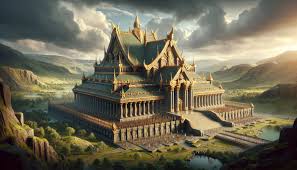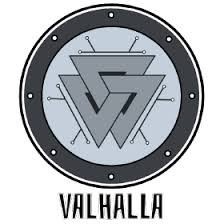



The second element, hǫll, is a common Old Norse noun. It is cognate to Modern English hall and offers the same meaning. Both developed from Proto-Germanic *xallō or *hallō, meaning 'covered place, hall', from the Proto-Indo-European root *kol-. As philologists such as Calvert Watkins note, the same Indo-European root produced Old Norse hel, a proper noun employed for both the name of another afterlife location and a supernatural female entity as its overseer, as well as the modern English noun hell. In Swedish folklore, some mountains traditionally regarded as abodes of the dead were also called Valhalla. According to many researcher, the hǫll element derives from hallr, "rock", and referred to an underworld, not a hall.


